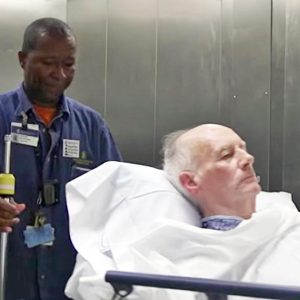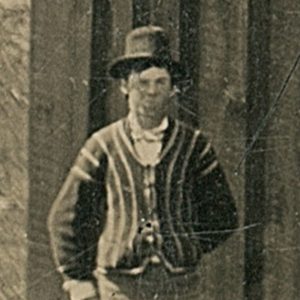The owner of a restaurant takes revenge on a waitress who refused to date him by firing her for taking leftovers home. Soon after, he regrets it and begs her to come back.
George wasn’t a pleasant man. He was talented, successful, and very rich, but no one really liked him. His customers loved his food, yes, but his employees detested him.
The forty-seven-year-old man was used to getting his own way, especially with women. Because even if George wasn’t charming, he was very handsome.

Many women thought he was the strong silent type and were usually disappointed by his sarcasm. George was an angry, bitter man, and he took it out on the world around him.
One evening, he was at one of his restaurants when he noticed one of his waitresses handling a notoriously difficult but very good customer. Even though the man was obnoxious, her smile never wavered.
In fact, after a few minutes, he saw the man smile back and nod. She’d obviously managed to turn him around. George noticed that the woman had a lovely smile.
She wasn’t young or particularly beautiful, but that smile made her glow. When she walked by, George stopped her and introduced himself. “Lovely to meet you, sir!” she said with that glorious smile.
Bitterness can hide a broken heart.
“Please, call me George,” he said. “What’s your name?”
“I’m Debbie,” she said. “I started this week.”
“Well, Debbie, why don’t you have a drink with me after we close,” George drawled. “You can tell me all about it.”

Debbie looked away quickly. “I’m sorry, sir, I’m afraid I can’t, but thank you for the invitation. I’m very flattered…”
George couldn’t believe his ears! This middle-aged woman was turning him down? HIM? Handsome, rich George? “There’s a customer waiting on table twelve!” he said coldly. “Stop dawdling and get moving!”
George asked his night manager about Debbie, and the man sang her praises. “She’s intelligent, quick, and efficient, and she can handle the customers like no one else!”
“Since we are looking for an assistant manager, you might want to keep an eye on her. She’s got potential!”
But George wasn’t in the least interested in promoting Debbie. He wanted to get rid of her as quickly as possible. In Debbie’s eyes, he saw the shadow of another man, a rejected man. He didn’t want to remember that man or his past.
He started watching her when he was in the restaurant and stopping by more often during her shift. Then one evening, he got exactly what he wanted: an excuse to fire her that the doting manager couldn’t refute. He caught Debbie stealing.
He walked into the kitchen and saw the waitress carefully tucking a Tupperware box into her shoulder bag. “Debbie!” he called. “Please come into my office!”

He saw with satisfaction that Debbie shuddered. Yes, he wanted her to be afraid! When she walked into his office, he was seated behind his desk. “Please open your bag,” he said with an unpleasant smile.
Debbie blushed vividly. George was delighted to see that there was no glow about her now. With trembling hands, she took two plastic boxes out of her bag and placed them on the desk.
George opened the boxes. One contained some leftover steak and vegetables, the other a piece of chocolate cake. “You’re fired,” he crowed. “Immediately!”
“Please,” Debbie whispered. “Please don’t! This food, it was going into the dumpster…”
“It’s my food,” George said. “I do what I want with it, and I didn’t want to give it to you, did I?”
Debbie looked every bit as devastated as George could have wanted, but he started to feel uneasy. He wasn’t enjoying this as much as he had imagined.

“Please,” Debbie said again. “You don’t understand…”
“Oh, tell me a sob story,” George sneered. “Your dear mother is dying!”
“My son,” Debbie said softly, and George’s heart nearly stopped. “My son has leukemia, and he needs treatments I can’t afford. I’ve been saving on food by taking the leftovers home.”
George felt as if the ground had been jerked out from under his feet. “Your son…Has leukemia…” he whispered. “This is true?”
Debbie took a photo out of her bag. It showed an eight-year-old in a hospital bed sporting a huge grin—the masculine version of Debbie’s glowing smile.
“My son,” George said, and his voice broke. “My son had leukemia. He…” How could he explain to the woman standing in front of him that once he’d been even poorer and more desperate than she was?
Once, George had a wife and a son, and even though he worked part-time at a pizza restaurant while he studied and the money was short, he was happy. Then one day, his wife came home with terrible news.

Their little son, Chris, just five, was terribly ill. George gave up college and started working two full shifts at the restaurant, but no matter how much he earned it just wasn’t enough to cover the medical bills.
And no matter what the doctors did, little Chris didn’t get better. George found himself standing in front of his son’s tiny coffin, watching the gravedigger shoveling dark dirt on his baby.
“LOSER!” his wife screamed. “My baby is dead, and it’s your fault!” Those words pierced George to the heart. A terrible sense of guilt overwhelmed him. Little Chris was dead because he was a poor provider.
He had killed his precious baby boy. George didn’t realize that angry people in pain lash out at those around them when they can’t lash out at God. He blamed himself too.
Now, with Debbie standing bravely in front of him, he remembered the man who’d been little Chris’s dad. A kinder man by far. He took a deep breath and looked Debbie in the eyes, and said in a gentle voice. “Take the food. We’ll talk about it tomorrow.”
Debbie was surprised, but she hurried to obey. She needed the job desperately, not just for the money, but for the insurance too. The next day, before clocking in for her shift, Debbie went to the hospital to pay some of her bills.

“Fully paid,” the woman said. “You can have the receipt.”
Debbie couldn’t believe it! She had owed tens of thousands of dollars on her son’s latest treatments! She hurried to work and was called to the boss’ office.
George was there, sitting with the manager. “Debbie,” he said. “We’ve decided to promote you. You will be an assistant manager from now on, with a considerable raise and added benefits…”
Debbie looked into George’s eyes and saw the compassion there, saw a man she could care about. “You paid for the hospital,” she gasped. “It was you!” But it was so much money…”
“I can make more money,” George said dismissively. “But your son is precious. Cherish him, Debbie; he’s your own personal miracle.” His reward was one of her radiant smiles, and he felt special for the first time in a long, long while.
He felt like little Chris’ dad again.
What can we learn from this story?
Bitterness can hide a broken heart. George was an angry, bitter man because he blamed himself for his little son’s death.
Helping others can heal a broken heart. When he helped Debbie and her son. George started to come to terms with his son’s death. He started to heal.
Share this story with your friends. It might brighten their day and inspire them.









